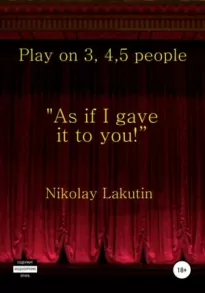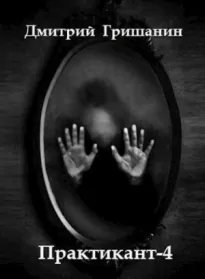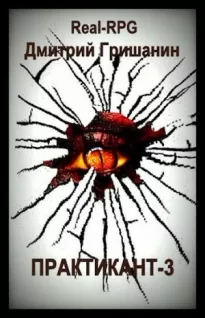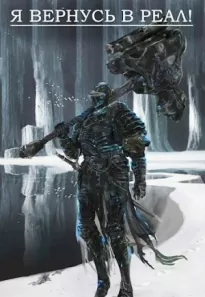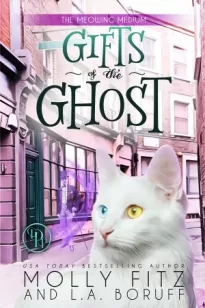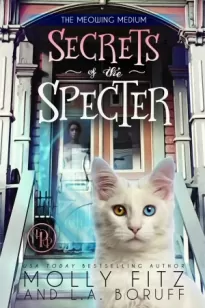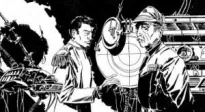Five Passengers from Lisbon
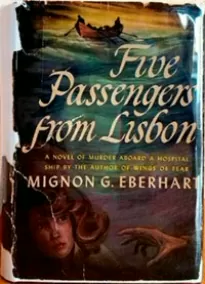
- Автор: Mignon Eberhart
- Жанр: Детективы
Читать книгу "Five Passengers from Lisbon" полностью
16
Anyone could have taken the revolver.
The young lieutenant had been assigned night duty. The revolver had been taken some time during the afternoon while he slept. Any number of people had gone along the passageway outside the quarters he shared with six others; naturally the door had not been locked. He had placed it beside his bunk; he admitted he was a sound sleeper. Although his superior officer had some words to say on the subject, it was not really a censurable act, and in any case it was spilled milk.
Unless by mere chance some witness came forward, it was almost hopeless to try to discover who had taken it. It could have been, as they knew from the beginning, anyone on the ship.
Except the Portuguese seaman, Urdiola. He was still locked up. Obviously he could not have shot Mickey Banet, either. He was not, however, absolved, for there still remained the diamond, and the extremely sound case against him in the matter of the murder of the other two Portuguese.
While it was difficult to believe that the murder of Mickey Banet had no connection with that of the two Portuguese seamen from the
At the same time it seemed most unlikely that there were two murderers on the ship.
Also, in the case of Mickey Banet's death, there was not even an attempt on the part of Colonel Wells and Captain Svendsen to establish alibis on the part of the other
The doctors believed it had occurred at least an hour before he was found; they could say little more than that. No one apparently had happened to visit the particular section of the deck where he was found (toward the stern, in the shadow of the rank of lifeboats, as a matter of fact, very near where he had first been attacked) during the afternoon. Again because of the fog the decks had been forbidden; they were cold, wet and slippery.
From that portion of the deck the sound of the shot might not have been heard, in any case. There were ventilators near and the sound of the motors which drove fresh air through the ship would have muffled it. Probably, however, he had been shot during one of the intervals while the foghorn was sounding. At any rate, no one had heard the sound, or at least had reported it.
The revolver which the young lieutenant had lost was not found. The other revolvers which had been issued to those small searching parties were immediately collected and examined. There were not many of them and none had recently been fired. They were re-issued and again the watch was doubled.
A search was made for the missing revolver but, it too, was a hopeless inquiry. If one of the
It was, of course, a different pattern of murder, and that again suggested that Urdiola might have killed the two Portuguese, but that someone else had killed Mickey Banet. It also suggested that that person could have been, as Mickey Banet had said, a woman.
It was hard to believe that a woman could have had the strength and the terrible courage to stab the burly strong young third officer, Castiogne. It was almost impossible to believe that a woman could have walked up behind Manuel Para and quietly and deftly slashed his throat.
But a woman could have held and aimed that revolver and pulled the trigger, leaving Mickey presumably dead.
It must have been, they reasoned, a shock to the murderer to hear that he was not dead, that he had even briefly revived. If so, however, that person did not betray the frightful suspense by any word or look. It would have been instantly observed, for the
It was a long and horrible wait. The red-covered chairs were damp and chill to the touch. No one read the magazines on the long table. It was like waiting in a hospital reception room to hear the news from a sick bed. Eventually, while they waited, Josh and Colonel Wells came to tell them briefly that he had died.
Neither of them, however, told them, then, what Mickey's last statement had been. They stayed only a moment and went away again.
Among the four people in the lounge there was very little expression, either of relief or regret, at the expected news. Gili sat huddled on a sofa, her long, streaked hair shading her face, and neither moved nor spoke. Luther, looking ill and tired to death himself, put his drawn face in his hands and kept it there so long that Daisy Belle went to him with an anxious inquiry in her eyes.
"Are you all right?"
"Oh, yes." He lifted his face reassuringly, but she put her fingers on his wrist for a moment nevertheless. He gave her a faint, patient smile and apparently satisfied, she walked to the black glittering port and stared out into nothing. Marcia thought, this is not possible; Mickey cannot have died like this; but she knew it was true.
There was after that another long wait; a corpsman came about midnight with sandwiches and hot cocoa in thick cups on a tray. Luther questioned him, and he told them that the ship was being searched. They had not found the murderer. When Luther asked about Urdiola, he said he was still under arrest.
"Then Urdiola couldn't have done it," said Daisy Belle. Her face was parchment gray; she was cold and kept her nurse's coat tight around her tall, spare body. Luther, his face pale too, and his lips blue, handed around the cups of hot cocoa.
Marcia drank slowly, holding it in both her cold hands. There is a state of shock that is almost like an anesthetic; fortunately, under an anesthetic one has no feeling. Marcia thought that once, staring into the brown cocoa, remembering as if from a time long past Mickey's candid, clear gray eyes, his smile, the things he had said. Also she recalled the thing that Josh Morgan had said which precipitated the search for Mickey. A Nazi war criminal, trying to escape a Europe which was too dangerous for him now that the Americans had come.
Mickey with his hands tragic and maimed by those same Nazis.
She was strongly aware all the time of Gili's presence across from her, and perhaps Gili was as strongly aware of her. Their eyes did not meet until Josh returned.
He came into the room quickly and everyone looked up with a jerk. His face was very white. The ship had been, by that time, thoroughly searched and no revolver was found and nothing leading to evidence concerning Mickey Banet's murder had been discovered, he told them tersely.
"What are they going to do?" asked Luther, his face ashen under the brilliant light and the pouches heavy below his tired eyes.
"Investigate as best they can. Hope, I suppose, that somebody saw something and will come forward to say so. They are making an urgent appeal. Anybody who knows of anything at all suspicious is asked to go to the Captain at once."
"Do you think that will come to anything?" asked Luther after a pause.
"I don't know. The Captain is coming here. He said he'd be along in a few minutes."
There was a sharp silence and then Daisy Belle said abruptly: "To ask us if one of us murdered him!"
"Yes," said Josh quietly. "I suppose they'll ask that. And they'll ask you to volunteer any evidence or even, I imagine, any opinions that you may have."
It was then that Marcia became aware of Gili's eyes, bright and green and fixed, staring at her thoughtfully. She did not speak, however, but only sat there, her long blonde hair hanging lankly about her face, her eyes fastened upon Marcia in that thoughtful way. Before anyone else spoke the Captain and Colonel Wells came into the room.
Mainly they looked terribly tired. It had been Colonel Wells, a surgeon before he became commanding officer of the medical unit for the
Captain Svendsen, however, swiftly took matters into his own hands. They all knew, he said, what had happened. If any of them knew anything of the murder or suspected anything they must understand how urgently important it was to tell them. He did not wait for anyone to speak but went on: "Shortly before he was found injured a question of his identity arose." He turned directly to Marcia. "You were engaged to marry him. You must have known the truth. Colonel Morgan says that he was really a man by the name of Banet, a concert pianist. Is that right?"
"Yes."
"Why was he using a false passport? And a false name?"
She told him. It had seemed best to leave Europe as quickly as possible. He had decided to use a passport which had belonged to a friend, Andre Messac. He had his own photograph substituted.
"Why did he not use his own?"
"He said he had none. He had nothing, no personal possessions. It would take time to secure a passport of his own."
"If he had turned Nazi he would not have dared to apply for one. He would have been afraid to let his identity be known anywhere in France, wouldn't he?"
"I suppose so. Yes."
"And you subscribed to his plan to use a false passport. Why? You must have known that that is a criminal offense."
At the time it had seemed the only course which might help, quickly, to restore Mickey to himself. Now it seemed futile to try to explain it. She replied: "It seemed right then. We intended to do something about it in Buenos Aires, go to the American consul and tell him the whole story. But then . . ."
"But then . . ." prompted Captain Svendsen.
"Then he determined to keep the name of Andre Messac."
"Why?"
She told him that, too. Mickey had been on the threshold of a great career. It had been taken from him. He had wished, he said, to save his pride and never again to be known as Michel Banet, who had promised so much and done so little.
There was a short silence, so they could hear the throb of the ship's engines, driving the ship on and on through the fog.
"When did he tell you that?" asked the Captain suddenly. "On the
"The night after we were taken aboard the
"And you agreed to keep his real identity a secret?"
She had neither the wish nor the strength to defend herself. "For the time being. Yes."
"What were you going to do when you arrived in America? Go through life as Mr. and Mrs. Andre Messac? A false name, a life of lies?"
It was, of course, what she had asked herself almost in so many words. She said: "I thought that he would agree to tell the truth."
Captain Svendsen turned to Josh. "Will you tell Miss Colfax exactly what you told me while Colonel Wells was operating."
Josh had been leaning against the table, the white sling for his wounded arm looming up brightly. His face looked almost as white. He looked at Marcia, and crossed to pull up a small chair near her. He sat down and leaned forward to take her hand. "Marcia, I knew Andre Messac. That is, I knew an Andre Messac in Paris. As you told me when I questioned you about him it is not an uncommon name. Still it was not exactly a common name, either. Andre was murdered by the Nazis." He looked down at her hand for an instant, his face set and grave.
The Captain showed anger and impatience—a deep-lying anger because of things the Nazis had done, things he had seen, things he had heard, which could never be undone, another and almost as biting an anger because he could not yet lay hold of the horrible thing he had brought aboard his ship with the passengers he had rescued from the
"He could not have been a Nazi. Mickey was arrested by the Nazis. He was tortured by the Nazis . . ."
Josh looked up into her eyes. "Everybody who was tortured," said Josh, with a queer sad note in his voice, "was not a hero. One stands torture, another does not. The Germans knew that; that was why they tortured. They wanted information about other people. They wanted to break and twist and turn. They had a double lever with Michel Banet; pain and the maiming of his fingers which meant his whole life. I think he gave in. I think he turned Nazi at once, within a day or two of his imprisonment and torture. Unfortunately for him, it was already too late to save his hands, but he could save his life, and did. By telling everything he knew. I've always thought that Andre Messac was betrayed by one of a very small group because Andre was so"—he hesitated—"so very intelligent. So cool, so rigid about plans and strict discipline. He foresaw the day that was to come. He knew that first winter how important to France the French resistance movement would become. He was a genius for organization. Even then he realized how unsafe it would be for men to know too much of each other in that organization. Even then, in the beginning, he arranged it so you knew the fewest possible names, the fewest possible men who were allied to you. Michel Banet was one of the few who knew Andre Messac was our leader. I knew it. Perhaps a few others. But Michel Banet was arrested, and almost immediately Andre was arrested and shot. I did not know that Michel Banet had betrayed. I only knew that Andre must have been betrayed. Banet had disappeared. The rumor was that he was killed, too. The Germans were in Paris. War between the United States and Germany seemed inevitable. I got back home, as I told you, and into the army. But you don't forget people like Andre. Well, when I knew that a man had turned up on this ship using that name, when I saw that man and knew it was not his name but a man I had known to be taken by the Germans only a day or so before Andre was murdered, I"—he stared down again at his hand still holding hers—"I had to find out the truth."
The Captain said: "Why didn't you tell me? Why didn't you warn me . . . ?"
Josh lifted his head. His face was very white and he looked as if he did not see Marcia, did not see anything but a somber and terrible picture that hovered in his thoughts. "Because I had to kill him with my own hands," said Josh.
There was a long silence in the lounge with its blank and glistening ports and its red cushions. Then the Captain cried: "But he said a woman did it!" He looked at Marcia. Everyone looked at Marcia except Josh who, with his dark head bent, stared down at her hand and his own, locked together.
